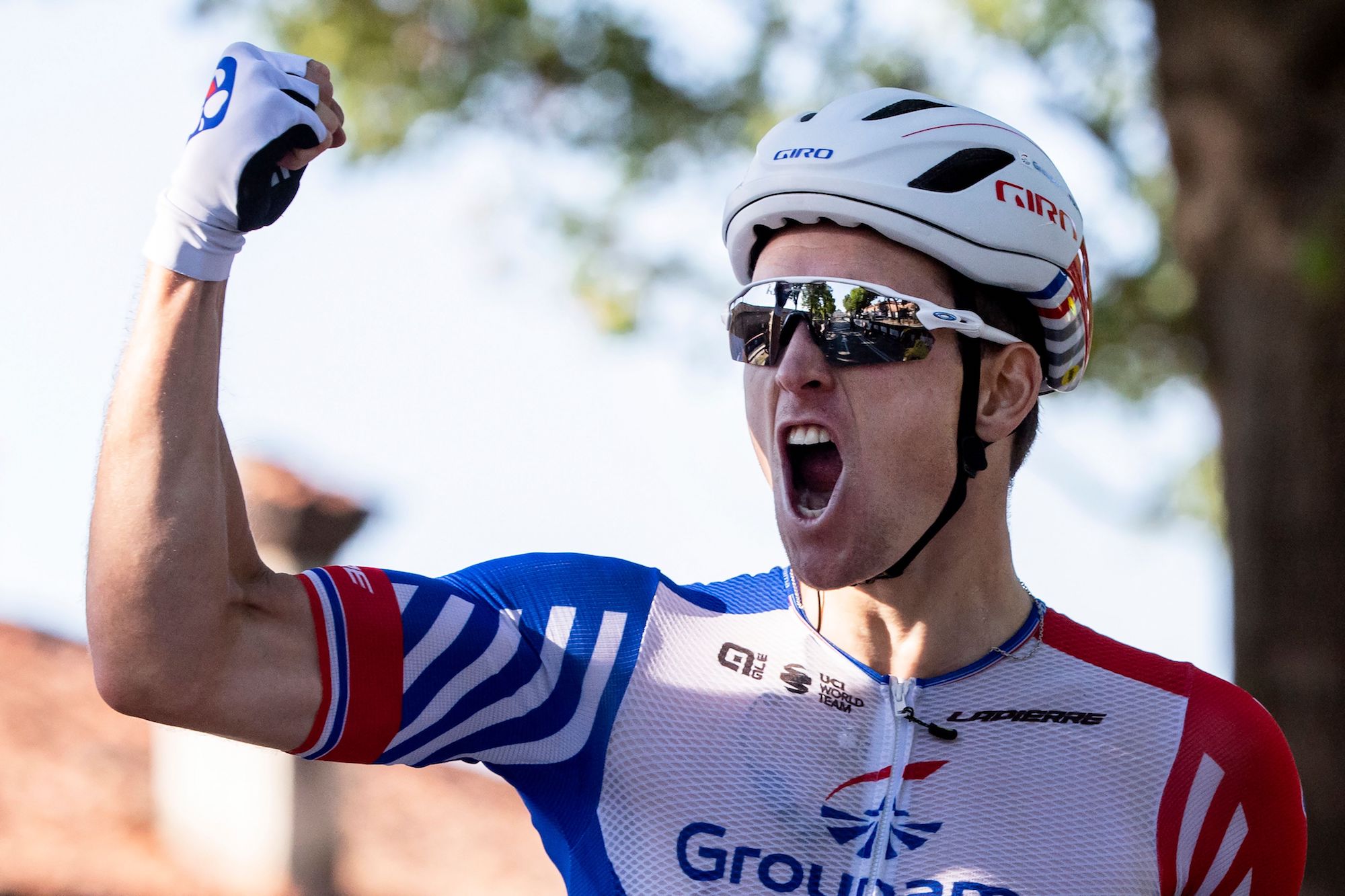Arnaud Démare says he fears no other sprinter as he heralds rebirth following lockdown
The Frenchman won the repurposed Milan-Torino in the build-up to Milan - San Remo, where he was the last sprinter to win back in 2016

Arnaud Démare wins Milano - Torino (Marco Bertorello/AFP via Getty Images)
Arnaud Démare says he fears no other sprinter following the coronavirus lockdown, the Frenchman having emerged for the better following quarantine.
"[I feared] no-one," the Groupama-FDJ rider said after his Milano-Torino victory, repurposed as a warm-up for Saturday's Milan - San Remo. "The lockdown has been good for me, for the first time in my career I've been able to relax for two months. It's been a bad situation [overall] for good to come about [for him personally]. But I've come back. I've always had the desire but now I also have the freshness that I was lacking."
Démare has struggled to really establish himself as a top-level sprinter amongst his peers, despite taking two stage wins at the Tour de France as well as being the last sprinter to win Milan - San Remo back in 2016.
He will face stiffer competition in the 2020 edition, with the likes of Caleb Ewan (Lotto-Soudal), Fernando Gaviria (UAE Team Emirates), Mathieu van der Poel (Alpecin-Fenix), Peter Sagan (Bora-Hansgrohe) and Sam Bennett (Deceuninck - Quick-Step) the other fast men who will compete if its a bunch sprint. But Démare says he and his team won't be made to feel like underdogs.
"I'm in good form, my team's in good form, we don't feel like underdogs, we feel reassured and very serene ahead of Milan - San Remo. Already at the Vuelta a Burgos we felt during the training camp we had three weeks before that it had paid off. We all have good legs, It was important to win and it's a good sign ahead of Saturday."
While the 29-year-old isn't particularly worried about the new inland course or the fact the race is taking place in August rather than March, he says the one big change is the fact a talented generation of punchy riders now compete for La Classicissima.
The latest race content, interviews, features, reviews and expert buying guides, direct to your inbox!
Since Démare won in 2016 the tile has been claimed by Michał Kwiatkowski, Vincenzo Nibali and his countryman Julian Alaphilippe.
"We now have a generation of riders who are very punchy, explosive, and therefore it's difficult to get a bunch sprint finish," Démare said. "It's difficult but not impossible. Except for two editions, there have been important groups of 10 to 15 riders going for the win.
"This time around it will be special because there are only six riders per team. I am more afraid of the explosive riders than of the new course. In this new situation, I will not be able to wait, I will have to move and not wait for the sprint."
As for the six riders, which Philippe Gilbert (Lotto-Soudal) has said brings the peloton close to the precipice of racing as individuals without a squad supporting them, Démare thinks tactically it could go either way.
"There are two options. It can animate the race and open it up but it might also block the race more. Possibly only breakaways of five or six riders will be allowed to go clear."
Démare sits in the press conference just outside Turin giving out the confident fighting talk you'd hope and expect from any star sprinter, especially one who's just disposed of Ewan, Sagan and Wout van Aert on a flat gallop for the line.
The Frenchman admits he feels a lot better at 29 years old than he did when he was starting out in his career, saying he believes maturity will help him achieve more than what he already has before his racing days are over, although he's happy with his palmarès so far.
"I'm happy, there has been a time in my career when I've grown up a lot. That's when I got my programme mostly made up of WorldTour races and now I come to them with experience, of both the races and training required.
"I know what I want, I'm a much more mature rider at 29 than 22. Now when I want something I put more of my heart into it more than when I was 22. When I was 22, cycling was easier but now I know what kind of work is required for the big races."
As we see the rebirth of the cycling calendar, may an intriguing subplot be the re-emergence of the French sprinter?
Jonny was Cycling Weekly's Weekend Editor until 2022.
I like writing offbeat features and eating too much bread when working out on the road at bike races.
Before joining Cycling Weekly I worked at The Tab and I've also written for Vice, Time Out, and worked freelance for The Telegraph (I know, but I needed the money at the time so let me live).
I also worked for ITV Cycling between 2011-2018 on their Tour de France and Vuelta a España coverage. Sometimes I'd be helping the producers make the programme and other times I'd be getting the lunches. Just in case you were wondering - Phil Liggett and Paul Sherwen had the same ham sandwich every day, it was great.